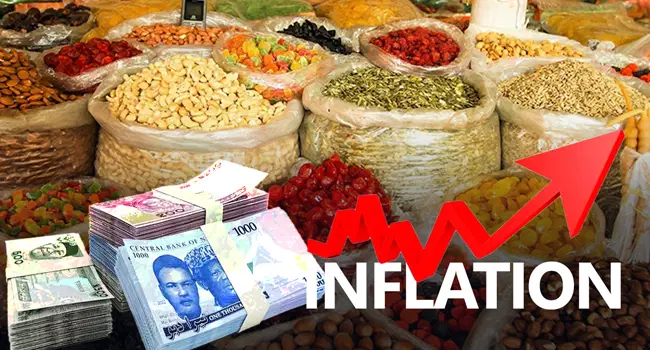The National Bureau of Statistics, NBS, says the headline inflation rate eased to 32.15% in August 2024, relative to the July 2024 headline inflation rate of 33.40%
This indicates that the August headline inflation rate showed a decrease of 1.25% points when compared to the July headline inflation rate.
Nigeria’s inflation rate is a complex situation! On one hand, the headline inflation rate decreased to 32.15% in August 2024 from 33.40% in July 2024, showing a slowing down of inflation . On the other hand, there was an increase of 6.35% points compared to the rate recorded in August 2023, which was 25.80% . This means that while the inflation rate is decreasing month-on-month, it’s still increasing year-on-year. Additionally, the rate of increase in the average price level in August was lower than in July 2024, at 2.22% compared to 2.28% .
Urban inflation
Year-on-Year:
· August 2024: 34.58%
· August 2023: 27.69%
· Increase: 6.89% points
Month-on-Month:
· August 2024: 2.39%
· July 2024: 2.46%
· Decrease: 0.07% points
12-Month Average:
· August 2024: 33.44%
· August 2023: 23.46%
· Increase: 9.98% points
In summary, the urban inflation rate in Nigeria increased by 6.89% points compared to the same period last year, but decreased by 0.07% points compared to the previous month. The 12-month average urban inflation rate also increased by 9.98% points compared to last year.
Rural inflation
The rural inflation rate in August 2024 was 29.95% on a year-on-year basis; this was 5.85% higher compared to the 24.10% recorded in August 2023.
· Year-on-Year (August 2024): 29.95% (5.85% points higher than August 2023)
· Month-on-Month (August 2024): 2.06% (down by 0.04% points compared to July 2024)
· 12-Month Average (August 2024): 29.32% (7.93% points higher than August 2023)
Food Inflation Rate:
· Year-on-Year (August 2024): 37.52% (8.18% points higher than August 2023)
· Causes of increase:
– Bread and cereals (e.g., bread, maize grains, guinea corn)
– Potatoes, yam, and other tubers (e.g., yam, Irish potatoes, water yam, cassava tuber)
– Oil and fats (e.g., palm oil, vegetable oil)
– Coffee, tea, and cocoa (e.g., Ovaltine, Milo, Lipton)
The food inflation rate is a significant contributor to the overall inflation rate, and the increases in prices of staple food items are affecting the cost of living in Nigeria.





















